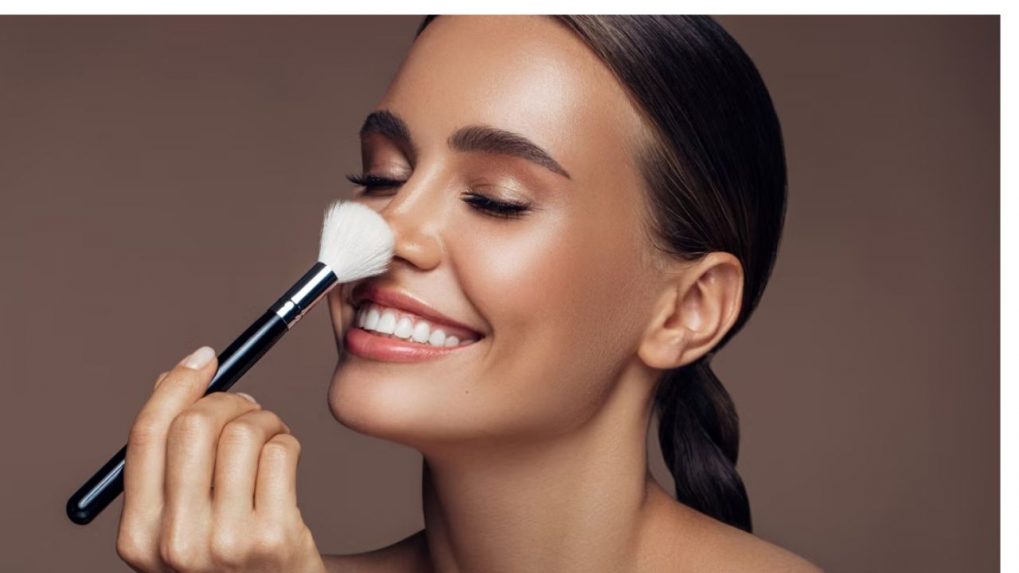Non-metros close gap, 55% of prestige beauty brands’ sales from non-metros: Nykaa
However, within non-metros, there is a significant variation in beauty demand & aspiration, creating opportunities for brands to think differently.
ADVERTISEMENT
Non-metros are expected to drive the growth in middle and high income households. There’s ~5x headroom for growth of per capita beauty and personal care (BPC) spend in non-metros compared to metros, as per the latest Nykaa Beauty Trends Report.
Nykaa's e-commerce revenue is primarily driven by non-metro regions, accounting for approximately 60%. As the market expands and distribution channels diversify through physical stores, general stores, supermarkets, and specialized beauty retailers, access to Nykaa's products is increasing, leading to wider reach.
With the influence of social media influencers who showcase beauty trends and impact purchase decisions, aspirations are also rising. YouTube's educational long-form content and the growing popularity of YT shorts are further democratizing information and accelerating adoption.
Then there is the rising prominence of premium with brands ~55% of prestige beauty brands’ sales from non-metros.
However, within non-metros, there is a significant variation in beauty demand & aspiration, creating opportunities for brands to think differently.
High aspiration cities like Chandigarh, Bhubaneshwar, Guwahati, Bhopal, Dehradun, Kanpur and Siliguri where established hubs of business such as trading, textiles, manufacturing with high discretionary income consumers has spending propensity similar to top metros. Emerging aspiration cities like Kochi, Amritsar, Jaipur, Faridabad, Ranchi, Jamshedpur, Gangtok, and Rajkot have spending propensity similar to some metros, though with smaller retail spend. Latent aspiration cities like Dibrugarh, Karnal, Gandhinagar, Sonipat, have have less propensity to spend on beauty, but have growth potential in the near future.
Some brands have built robust innovation and omnichannel capabilities to serve non-metros. Kay Beauty for example has utilized Nykaa’s distribution through 150+ Nykaa stores and select premium beauty stores pan India and also retailed through ~500 beauty advisor assisted stores across the country. Maybelline New York curates hero packs as per audience in each channel and focuses on 'valorization' and upgrading customers.
Homegrown brands
The last decade witnessed the proliferation of homegrown makeup brands and a resulting expansion of the market with <3% crossing Rs 100 crore. Launches on e-commerce for profitability, brand launch and updates based on differentiation and a compelling reason-to-believe, unified brand communication and content, marketing channels ranging from influencers to own websites to performance marketing to non-digital, deep consumer understanding, and identifying emerging trends are some of the strategies that are being adopted by these homegrown players to scale their playbook.
Acquisition has also played a major role here. In 2021, Nykaa acquired a majority stake in the skincare brand Dot & Key. Dot & Key has grown ~10X post acquisition in 3 years; it achieved profitability since January 2023. In 2022, Honasa Consumer acquired Dr. Sheth’s, a skincare brand. Dr. Sheth’s has witnessed over 30X growth post-acquisition in ~2 years.
Manufacturing
While Korea, Italy and China remain global BPC manufacturing hubs, contract manufacturing is booming in India, contract manufacturers currently in India, mostly based in North and West India, growing rapidly. They have evolved though co-innovation, quality control enhancement and adoption of advanced processes. They have evolved though co-innovation, quality control enhancement and adoption of advanced processes.
Intercos, a global manufacturer, provides services across the value chain from concept to reality. Entered India, by acquiring an advanced manufacturing facility in Dehradun. It clocked Rs 19 crore revenue in FY 2023, opened office with an experience centre and R&D lab.
Indian manufacturers are elevating to global standards with extensive focus on product innovation, with the influx of online-first brands, r&d is likely to become crucial for product innovation and high quality active ingredients, to gain edge over competitors.
Indian contract manufacturers are gradually adopting the manufacturing processes from advanced ecosystems, however, the pace of adoption is different across cosmetics and skincare manufacturing, skincare manufacturing is expected to be reactive, adopting global trends after a lag of ~6 months. The makeup manufacturing ecosystem in India is expected to be at par with China, USA, and EU by 2030.

